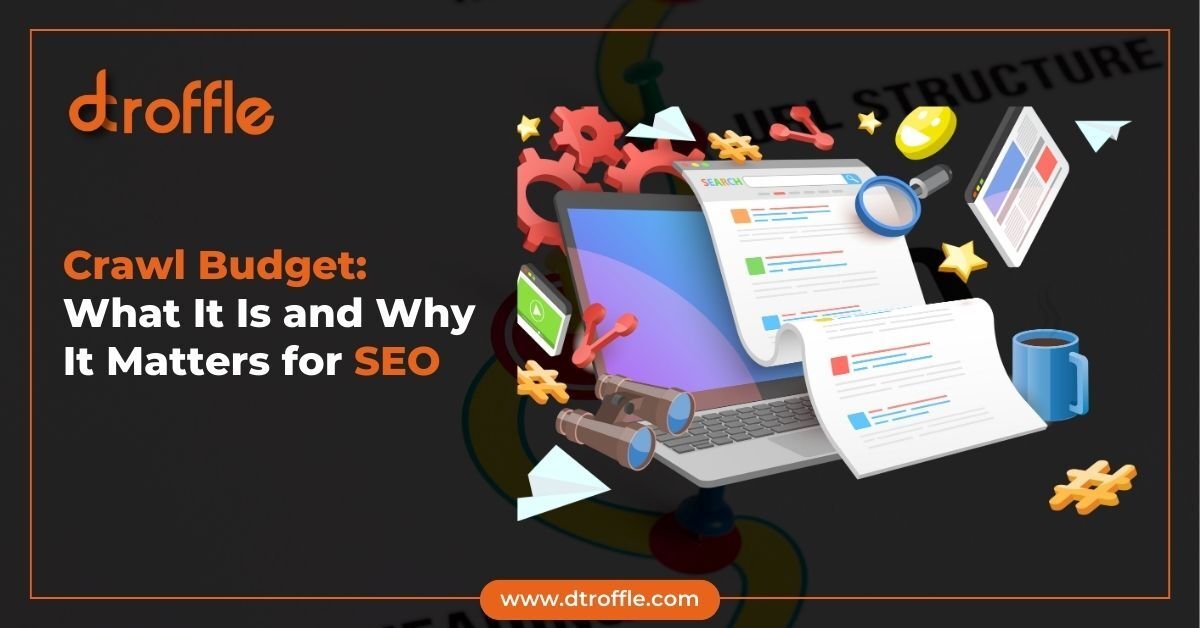Crawl budget is a crucial concept in SEO that can significantly impact how search engines index your website. Understanding and optimizing your crawl budget can help search engines efficiently crawl and index your website’s most important pages. Here’s a comprehensive guide to crawl budget and why it matters for SEO, with insights from an SEO company Agra.
What Is a Crawl Budget?
Crawl budget refers to the number of pages a search engine’s crawler, such as Googlebot, is willing to crawl on your website within a specific timeframe. It’s influenced by your site’s overall health and structure, and it determines how frequently and deeply search engines explore your content.
Key Elements of Crawl Budget:
- Crawl Budget Allocation: Search engines allocate a certain amount of resources to crawl your site, which includes a limit on the number of pages they can visit.
- Crawl Frequency: The frequency at which search engines revisit your pages can affect how quickly new or updated content is indexed.
Why Is Crawl Budget Important?
Understanding and managing your crawl budget is important for several reasons:
- Efficiency: Ensures search engines crawl your most important pages rather than spending time on less relevant ones.
- Indexing: Helps in faster and more effective indexing of new or updated content, improving the likelihood of your pages appearing in search results.
- Site Health: Identifies and resolves issues that might be wasting crawl resources, such as broken links or duplicate content.
Factors Affecting Crawl Budget
Several factors can influence your crawl budget, including:
- Site Structure: A well-organized site structure with a clear hierarchy helps search engines navigate your site more efficiently.
- Page Load Time: Faster-loading pages will likely be crawled and indexed promptly. Slow pages can lead to a reduced crawl rate.
- Content Quality: High-quality, unique content encourages search engines to spend more resources crawling your site.
- Duplicate Content: Duplicate or low-quality pages can waste crawl budget and dilute the value of your site’s content.
- Site Errors: Errors such as broken links or server issues can negatively impact crawl budget allocation.
How to Optimize Your Crawl Budget
Optimizing your crawl budget involves several strategies to ensure that search engines efficiently crawl and index your most important pages:
1. Improve Site Structure
- Organize your site with a clear hierarchy and internal linking structure.
- Use XML sitemaps to guide crawlers to your most important pages.
2. Enhance Page Load Speed
- Optimize images, use caching, and minimize code to improve page load times.
- Regularly test your site’s performance and make necessary adjustments.
3. Eliminate Duplicate Content
- Use canonical tags to indicate preferred versions of pages and avoid content duplication.
- Regularly audit your site for duplicate or thin content and take corrective actions.
4. Fix Site Errors:
- Identify and fix broken links, 404 errors, and server issues to prevent crawl budget wastage.
- Use tools like Google Search Console to monitor and address site errors.
5. Focus on Quality Content
- Create relevant content that attracts search engine crawlers and encourages frequent indexing.
- Regularly update and improve content to maintain its relevance and quality.
6. Monitor and Analyze Crawl Activity
- Use tools such as Google Search Console to track crawl statistics and identify areas for improvement.
- Analyze crawl patterns to understand how search engines interact with your site.
Final Note: Effective crawl budget management ensures that search engines index and rank your most important pages. By implementing these strategies and consulting with an SEO company in Agra, you can optimize your crawl budget and enhance your site’s SEO performance.









